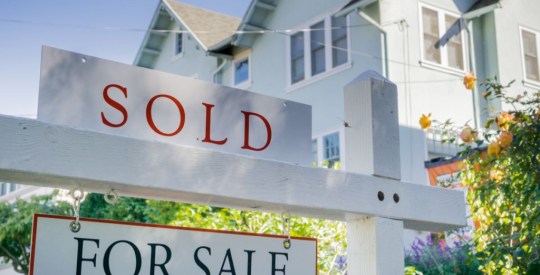Monday Morning Cup of Coffee takes a look at issues trending on the HousingWire weekend desk, with more coverage to come on bigger issues.
Two stories making the rounds this weekend take turns at reverse mortgage bashing — and praising.
An article in the Arizona Daily Star dives into one particular instance of "usurious" terms associated with a reverse mortgage. The story takes the side of an elderly homeowner being fleeced, even after death, by her reverse mortgage lender.
The loan in question is so ridiculous the author appears incredulous it could even be written.
"Is this for real? Do mortgages with terms like this actually exist in this country today?" asks author Kenneth Harney. "They do," he answers.
The piece in the Star Tribune discusses what it believes ismuch-needed reform in the reverse mortgage space.
"Right now, practically anyone who is breathing can qualify for a reverse mortgage — no underwriting or credit scores necessary. But that might be about to change," writes Tara Siegel Bernard.
The article cites new Federal Housing Administrationregulations as "draconian."
Effective Oct. 1, yet another of its reverse mortgage products will probably be eliminated, the article explains, leaving borrowers with options that would allow them to get access to 10% to 15% less cash than they can now.
"The challenge is to strike the right balance — and one that doesn’t squeeze out the people who need the program the most," the author concludes.
The Motley Fool is looking into its crystal ball and predicting mortgage rates will head higher.
An accompanying chart provides backup to the opinion. It shows that the rate on a conventional 30-year fixed-rate mortgage has fluctuated an average of 6.38% in each of the past four weeks.
The observation that higher mortgage rates aren't putting an undue damper on the demand for purchase-money mortgages, and thus housing, is very good news," writes John Maxfield. "This is because mortgage rates are bound to go even higher. It's inevitable."
The renter's takeaway: Better get off the sofa and go buy a home, while there is still time.
Who is running this housing recovery?
Sadly, two articles show that it's not the American first-time homebuyer.
According to a blog post on CNN, a new analysis (Note: the data is a month old) of U.S. Census data by Americas Society/Council of the Americas and Partnership for a New American Economy shows that immigrants have collectively added $3.7 trillion to U.S. housing wealth.
There is an illogical point, however, where the authors say that immigrants buying housing attracts Americans into the market as well.
"For every 1,000 immigrants who move to a county, 250 U.S.-born people eventually follow, drawn by the new economic opportunities that have been created," the authors state, without clarifying how Americans already living in America are expected to up and move back to America.
At any rate, one demographic that is NOT participating in the housing recovery is the younger generations, according to an article in USA Today.
Between 2006 and 2011, those 25-34 experienced the largest decline in home ownership rates in the country, according to a USA Today analysis of Census Bureau data. High unemployment and debt loads are just some of the factors, but have led to a decreased ability to save for a downpayment or qualify for a mortgage.
In the article Budge Huskey, CEO of residential brokerageColdwell Banker explains the mindset of this generation: "They've seen other friends or acquaintances that may have even gone through a foreclosure. There's a psychological aspect of the impact of the recession that goes beyond the mere finances."
Another piece in USA Today predicts existing home sales figures and new home sales numbers being released this week.
An article in The Wall Street Journal is not concerned about rising mortgage rates impacting the economy, should that be the case this week. Author Nick Timiraos writes rates could rise to 6% or prices could rise an additional 20% before housing would become unaffordable relative to historical levels.
The Federal Deposit Insurance Corp. closed no banks this weekend.



